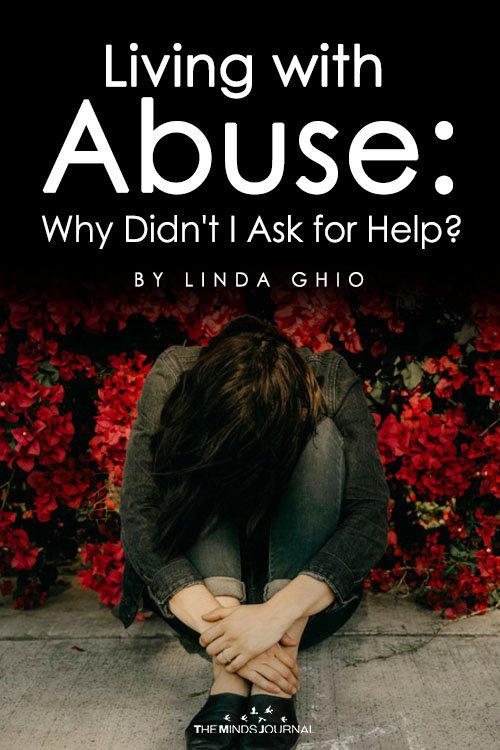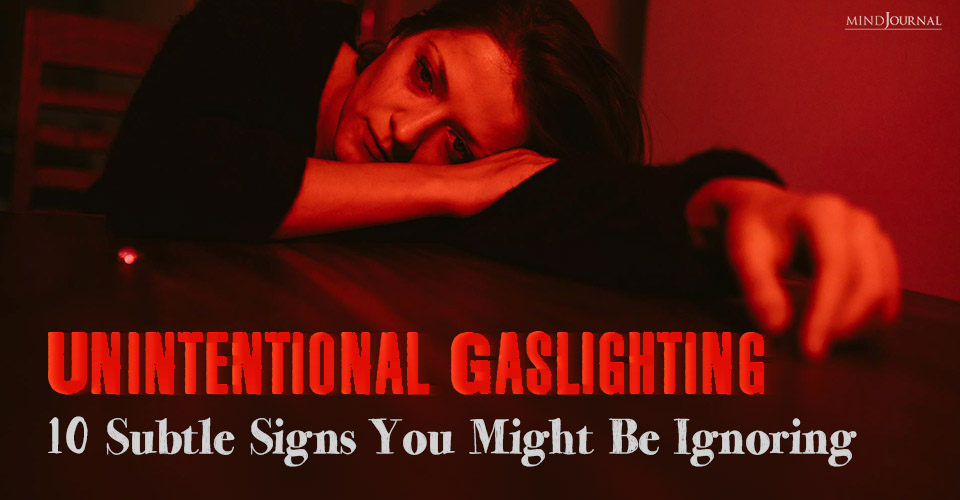When he found out I’d been abused in silence right under his unsuspecting nose, a dear friend asked me, in shock: “But why didn’t you say anything? Why didn’t you ask for help?” And, in that moment, I couldn’t find an answer. There were a lot of reasons, popping up one after the other, or entwined together in a noose that had strangled me for months. Too many to pick apart and explain in a few words why I’m living with abuse.
Living With Abuse: Why Didn’t I Ask for Help?
1. Because I didn’t understand
At first, I didn’t tell because I didn’t know what to say: I had no idea I was a victim and living with abuse. He’d never raised a hand on me, after all: I’d never heard of emotional abuse, so I couldn’t recognize it.
I was confused, in pain, nothing made sense – his angry outbursts, his irrational, cruel behaviors, his swings between two completely opposite personalities, his alleged cheating with literally any willing woman he could find… but he could be so affectionate at times, and was always kind and charming to everyone else.
I didn’t know that those abrupt shifts between the loving guy and the monster were the classic cycle of abuse. I didn’t know that living every day in fear and anxiety, walking on eggshells trying to not ‘make him angry’, is a classic symptom of an abusive relationship.
I didn’t know that claiming I was responsible for my own mistreatment because I ‘made him angry’ is the go-to excuse of abusers. All I knew was that I felt I was living an absurd, surreal nightmare, and I didn’t understand what was going on.
Read Unraveling PTSD after Narcissistic Abuse
2. Because I didn’t know who to tell
I didn’t tell because, even if I’d known what to say, who could I have told? The abuse often starts when the victim is somehow isolated from her support network, for instance after having moved far away from home: and, both of us being travelers, we had just moved to a foreign country where our only contacts were a couple of old friends of his.
I was cut off from my friends and family: but, while I was used to travelling alone and therefore to being cautious toward everyone, this time I had a weak spot. I had a person I relied on, that I thought I knew and I could trust: but that person was him.
Sure, we’d made new friends, nice people, but I’d only known them for a few weeks: I wasn’t comfortable sharing with them such a delicate personal problem. And they were friends of both of us – it seemed unfair to drag them into all this, putting them in an awkward position.
3. Because I wanted to protect him
I didn’t tell that I’m living with abuse, because I wanted to protect him and the life we had built together. He had a scintillating reputation with everyone: we’d been together for almost a year, and he’d consolidated that good reputation with me too. I sincerely believed he was a normal good guy: he obviously had a few issues, he was going through a difficult time – even though I couldn’t figure out why, since objectively our life was pretty darn great. Yet, he was always angry and unsatisfied, so he had to be deeply unhappy.
Read Complex-PTSD: Recovery In Psychotherapy For Survivors Of Narcissistic Abuse
Surely he couldn’t control it, it was the only logical explanation: who would deliberately choose to behave in such a cruel way, and why, if not because of some deep-seated pain?
Of course, he was having fun every day at the bar with buddies and girls, but maybe I was the only one he felt comfortable showing his pain to. I felt sorry for him: how could I make him look bad in front of all his friends because of that? I just had to keep his secret and try to offer support, to cheer him up until the difficult time had passed.
4. Because I thought it was my fault
I didn’t tell that I’m living with abuse because he convinced me it was my own fault. He was kind to everyone and only turned into a furious monster as soon as he was alone with me: every little thing I said or did could cause an outburst. As much as I always obeyed him, did everything he wanted, bent over backward to please him, it was never enough.
If I was lucky, he ignored me huffing in annoyance, just to turn into the most jovial man on Earth as soon as anyone else appeared. Watching him flirt with every woman or girl he saw, hearing his comments about how hot they were while all I got were insults made me feel worthless.
It didn’t matter how much I tried to look good, how every guy at the bar showered me with compliments: all I got from him was criticism, disgusted looks. At best, I was ostentatiously ignored.
It was clear that he couldn’t stand me, that I disgusted him: clearly, I had to be the one making him so unhappy. Yet, when I tried to break up with him because of this, he was the one who asked me to stay…
5. Because nobody would believe me
When it finally occurred to me that I wasn’t doing anything wrong to deserve his constant attacks, nothing that justified that irrational hatred, though, I realized that even if I talked, nobody would believe me. Everybody thought he was such a great guy, and they had never seen the monster he turned into in private.
His abrupt personality changes were too absurd: nobody who hadn’t witnessed it first hand could have imagined it, if I myself had trouble believing it.
They would think I was exaggerating, that we were simply having “couple’s problems” that should be fixed privately. He’d always been nice to them, they all adored him: he would deny everything anyway, and I had no proof – I didn’t have any bruises to show.
Read You Can Get PTSD From Staying In An Emotionally Abusive Relationship
6. Because I was scared
And, finally, I kept quiet because I was too afraid to talk. When he showed his true colors in public for the first time – lashing out in a packed club at a girl who’d found out about his cheating, screaming in front of everyone that he was gonna kill her – it was too late.
I’d listened to his vengeful rants while he plotted to destroy her, ruin her reputation, run her over with his motorbike because anyone who wasn’t on his side was an enemy that had to be crushed.
My whole life revolved around trying in vain not to make him angry. I was completely conditioned to obey him like a dog, to keep my head down, anything to try and avoid another furious outburst: and now, for the first time, I was afraid I was dealing with an unhinged, dangerous individual.
I knew that if I talked, if I threatened his precious reputation like that girl had done, he would get angry. He would punish me like he always did, and the thought made me sick with terror. I couldn’t talk.
Read After the Abuse: The Price of Speaking Out
7. And finally, I decided to speak up anyway
When in the end I got away and came to the realization that of course, it was all deliberate on his part, of course, he knew what he was doing, of course, he could “control” himself perfectly in front of everyone else – especially all the girls he was sleeping with behind my back while inundating me with lies – of course, I wasn’t doing anything wrong to deserve to live in fear, my compassion evaporated. But the fear remained.

Just like the knowledge that I wouldn’t be believed, even less after ending the relationship – that I’d be labelled as a vengeful crazy ex.
He’s far away now and I am safe – even if my subconscious hasn’t figured that out yet, judging from the way I keep waking up in cold sweat in the middle of the night, heart thundering in my chest, caught in a blind panic.
Why rock the boat when, even if I talked, not only would I incur in his wild fury and maybe dangerous revenge, but it would all be for nothing?
I can only answer for myself. And I choose to speak out for a constellation of reasons, the main of which can be summed up as Because I’m tired of being afraid.
Are you living with abuse? Are you ready to ask for help?











Leave a Reply